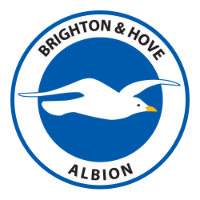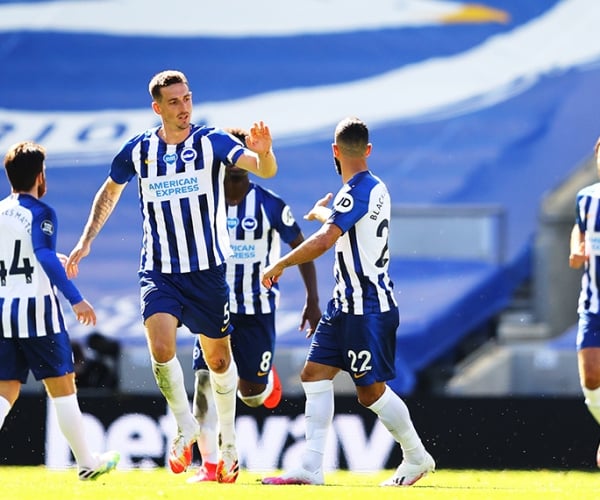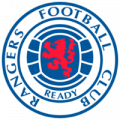
Brighton & Hove Albion Football Club

1901 Brighton
Brighton & Hove Albion is an English football club from Brighton, England who play in the Premier League at their home ground, Falmer Stadium (known as the American Express Community Stadium, or the Amex Stadium for sponsorship reasons).
Club Summary
The club have won one major honour throughout their history, which was the FA Charity Shield, though they have also been champions of various divisions of English football too.
Their record signing came in 2021, when Enock Mwepu was signed for a little over £20 million from RB Salzburg, whilst the highest fee they have sold a player for was £52 million, which is what Arsenal paid for central defender Ben White.
Perhaps one of the oddities of the club is that their main rivals, while not geographically close, are that of Crystal Palace, primarily dating back to the 1970s when there was an intense rivalry between the two teams' respective coaches - Alan Mullery, for Brighton and Terry Venables for Palace.
Early Beginnings
Originally founded as Brighton & Hove United (a name that was changed soon after formation to the current one) on 24th June 1901, the club was effectively a de facto replacement for the recently defunct Brighton & Hove Rangers in the semi-professional Southern League.
Whilst in that league, the club won the FA Charity Shield, defeating Football League champions Aston Villa at Stamford Bridge by a scoreline of 1-0 - the only time the Southern League champions defeated the Football League winners in the five seasons in which that format was played.
After the First World War, the club were elected to the Division Three South, which they remained in for many years - until the 1957/58 season in fact, at which point they won the league, achieving promotion to the Second Division.
That success was short-lived though, with the club being relegated twice in a row just a couple of years later, ending up in the fourth division for the first time in their history, before battling their way back up to the second division by 1972.
'The Bamber Era'
Also in 1972, Mike Bamber became chairman of the club, and his stewardship saw the side promoted to the first division for the very first time in 1979, where they stayed for an impressive four seasons, before being relegated back down to the second tier in 1983.
Also during his time as chairman, Bamber made multiple notable appointments, including bringing on board the legendary Brian Clough as manager, while later hiring Alan Mullery, who had previously been in charge of the England team.
During those years, Brighton made it all the way to their only ever FA Cup Final (in 1983), drawing 2-2 with Manchester United, before going on to lose the replay 4-0 in the end, which was made all the more painful by the chance missed by Gordon Smith for the Seagulls in the final moments of the first match, which would've won the game.
Problems off the pitch
A rocky 1990s then followed, with various promotions and relegations between divisions, before controversy over the sale of the Goldstone Ground led to the team having to play 70 miles away, sharing a stadium with Gillingham for two years.
Then, the Seagulls were forced to relocate to another temporary home, this time the Withdean Stadium, a little closer to their previous home, but it was still not a permanent fix - and one wouldn't come for another 12 years either.
The club stayed strong though, and while they had come perilously close to losing their Football League status, they held on and by the 2002/03 season they were back in the second division once more.
A few more years in League One followed, before bouncing back into the Championship, with the first game back in the second tier coinciding with Brighton finally having a new stadium to call their own in the form of Falmer Stadium in 2011.
Rise to the top
It took a few attempts before Brighton found their way back to the top of the English football pyramid, falling two years in a row in the play-offs, much to fans' despair, but there was to be hope on the horizon very soon.
Eventually, under the leadership of Chris Hughton who had been appointed in 2014, Brighton made a long-awaited return to the top flight, being automatically promoted to the Premier League at the end of the 2016/17 season after coming second in the Championship.
Since then, the club have remained in the division, hovering just above the relegation zone for the first few years of their return, before coming in 9th place in the 2021/22 campaign - their best ever finish in a league campaign, which also saw them pick up a record 51 points in the Premier League.
Most Appearances
- Tug Wilson - 509 (1922-1936)
- Norman Gall - 440 (1962-1974)
- Peter O'Sullivan - 435 (1970-1981)
- Glen Wilson - 409 (1949-1960)
- Bobby Farrell - 382 (1948-1958)
- Gary Hart - 373 (1998-2011)
- Kerry Mayo - 368 (1996-2009)
- Reg Wilkinson - 361(1924-1934)
- Bert Longstaff - 356 (1906-1921)
- Brian Powney - 351(1962-1974)
Most Goals
- Tommy Cook - 123
- Glenn Murray - 111
- Kit Napier - 99
- Bert Stephens - 96
- Peter Ward - 95
- Albert Mundy - 90
- Bobby Zamora - 90
- Bert Longstaff - 86
- Bobby Farrell - 84
- Dan Kirkwood - 82
List of Managers
- John Jackson (1901-1905)
- Frank Scott-Walford (1905-1908)
- Jack Robson (1908-1914)
- Charlie Webb (1919-1947)
- Tommy Cook (1947-1947)
- Don Welsh (1947-1951)
- Billy Lane (1951-1961)
- George Curtis (1961-1963)
- Archie MacAulay (1963-1968)
- Freddie Goodwin (1968-1970)
- Pat Saward (1970-1973)
- Brian Clough (1973-1974)
- Peter Taylor (1974-1976)
- Alan Mullery (1976-1981)
- Mike Bailey (1981-1982)
- James Melia (1982-1983)
- Chris Cattlin (1983-1986)
- Alan Mullery (1986-1987)
- Barry Lloyd (1987-1993)
- Liam Brady (1993-1995)
- Jimmy Case (1995-1996)
- Steve Gritt (1996-1998)
- Brian Horton (1998-1999)
- Jeff Wood (1999)
- Micky Adams (1999-2001)
- Peter Taylor (2001-2002)
- Martin Hinshelwood (2002)
- Steve Coppell (2002-2003)
- Mark McGhee (2003-2006)
- Dean Wilkins (2006-2008)
- Micky Adams (2007-2009)
- Russell Slade (2009)
- Gus Poyet (2009-2013)
- Oscar Garcia (2013-2014)
- Sami Hyypia (2014)
- Chris Hughton (2014-2019)
- Graham Potter (2019-)








































